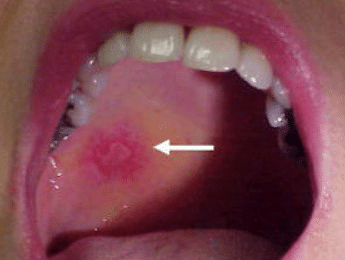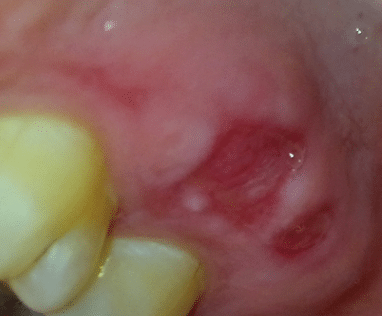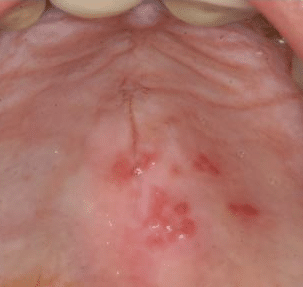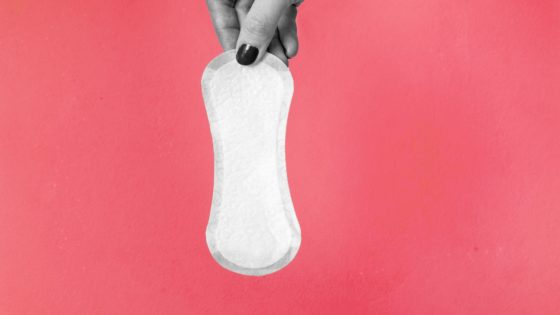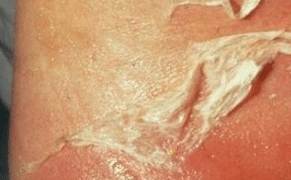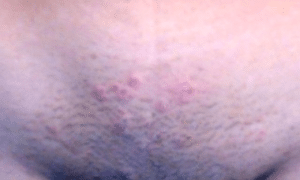A blood blister is characterized by a raised section of the skin filled with blood. In most cases blood blisters are a minor health condition that should not bring a lot of worry and tension, most of them usually go away after a short time. Get an overview of causes of blisters in mouth roof and gums, treatment and relief.
Blood Blister on Roof of Mouth Causes
In most cases, one blood blister forms on the roof of the mouth. The blister is normally huge and very painful. It makes chewing food and even swallowing a very painful experience. Depending on the cause, they usually heal on their own after a few days. To speed the process of healing, you can get rid of them using home remedies such as garlic, rosewater, turmeric and many others as presented.
What Causes a Blood Blister in Mouth
- Medications
Medication, such as nalidixic acid and furosemide can cause mild, blistering skin reactions. Others such as the doxycycline can increase the risk of blistering sunburn by increasing the skin’s sensitivity to sunlight. In more dramatic cases, medications can trigger more severe, even life-threatening, blistering disorders, such as erythema multiforme or toxic epidermal necrolysis, also known as TEN, an illness that causes severe skin damage and typically involves 35% of the body or more of the body surface.
- Mouth Injury
If you eat foods that are hard or foods that are too hot, you can cause damage to the lining of the cheeks and this can result in blood blisters. If you eat your food too fast, you can accidentally bite the inside of your cheek or your tongue. You need to pay attention to pay attention to your eating when you eat so that you don’t get blood blisters in mouth.
- Excessive Alcohol drinking
People who abuse alcohol can get ulcerations of the mouth which can lead to blood blisters inside the cheeks or under the tongue.
- Skin diseases
Erythema multiforme typically causes blisters on the mucous membrane in the eyes and in the mouth- [lips, cheeks and tongue]. Also autoimmune diseases such as bullous disease, dermatitis and herpetiformis cause appearance of blisters in the moth. However some skin diseases like pemphigoid, though uncommon but tend to strike in middle age, cause blisters inside the mouth and on the surface of lips. The blisters of pemphigus break easily and leave painful areas.
- Oral Herpes
Oral herpes are caused by a virus known as Herpes simplex. When herpes simplex is the cause, the tiny blisters commonly are known as fever blisters or cold sores. They typically appear on the lips. The affected area may, tingle, swell and become red. Signs that you have oral herpes can be blood blisters in all parts of the mouth and lips. These are painful lesions that can bleed and result in systemic symptoms, such as muscle aches, fever and fatigue. Oral herpes outbreaks can come and go and are particularly associated with stress.
- Vitamin Deficiency
Acute vitamin deficiency can also cause blood blisters in the mouth. Vitamin B12 and Vitamin C deficiencies are the primary reasons of mouth ulcers that can aggravate to mouth blisters.
- Angina Bullosa Haemorrhagica
Formation of blood-containing blisters in the oral cavity may indicate angina bullosa haemorrhagica [ABH] that usually occurs in the elderly. In most cases, an isolated medium-sized blood filled blisters is visible on the inner cheek or underside of the tongue. In rare cases, a large blood blisters may develop inside the oral activity.
Blood blisters associated with ABH, usually break open a few minutes after their formation, causing an open wound to develop in the affected area. The ulcer formed usually heals without any medical treatment. Some of the risk factors for ABH include trauma to the tissues of the mouth, chronic usage of inhaled steroids and diabetes.
- Cheek Biting
The habit of hastily consuming the food during meals increases the risk of unknowingly biting the cheeks or the tongue. Chatting or watching television while having food is one of the main reasons behind increasing number of cheek biting cases.
- Low platelet count
Platelets are tiny small cells circulating in our bloodstream that assist in blood clotting. However, when the platelets are significantly below the normal range- (low platelet count), blood blisters may form inside the mouth. This condition is often referred to as idiopathic thrombocytopenic purpura ( ITP) in which platelet count plummets for unknown reasons.
- Pregnancy
Pregnancy can cause the development of blood blisters on the tongue for some women. This appears to be the caused by certain hormonal changes that cause tongue soreness. Women who develop blood blisters on the tongue during pregnancy often also experience problems in chewing and swallowing food, skin rash and fever. It is crucial that you visit your doctors so that he or she can evaluate your symptoms and ensure that there is nothing more serious wrong.
- Oral ulcers
Ulcers are caused inside the mouth due to inversion of micro-organisms. Ulcers can also be caused due to side-effects of certain medications. Ulcers can be categorized into two parts- cold sores and canker sores. Mouth blisters occur due to canker sores when small, oval shaped white spots are evident inside the surface of mouth.
- Food Allergies
If you are allergic to some foods, you can get blood blisters in your mouth after eating the offending food. This is commonly seen after eating citrus fruits. The only way to take care of this problem is to stop eating the food causing you the problems.
- Medical prescriptions
Certain medications can result to an allergic reaction. The allergic reaction can show up as mouth blisters.
Blood Blister on Gum Causes
Below are 2 prominent causes of blood blisters on the gums:
Gingivitis
Blood blister on the gum arise as a result of food particles staying for a longtime within and between the teeth. These food particles break down into bacteria and acids. The acids cause tooth decay and the bacterial cause gum disease. Gum disease (periodontal disease) is the leading contributor of tooth loss among adults in the United States and Canada.
The first stage of gum disease is called gingivitis, which is also known as periodontal disease. Gingivitis is an inflammation of the gum tissue caused by bacteria wherein the gingival tissue becomes red, swollen and forms blood blisters inside the pockets of gum tissue surrounding your teeth. When these blood blisters are disturbed by either brushing or flossing they break open and blood rises to the top of the gingival where you can see them.
If you don’t floss your teeth, the bacteria that cause gingivitis will destroy the fibers that attach your gum tissue to your teeth. When these happens the depth of the collar of the gum tissue around your teeth increases. If the pockets become too deep you will, no-longer be able to remove the food and debris by brushing and flossing. When this happens the pockets become progressively deeper and the periodontal {gum} disease will worsen.
Tooth extraction
A blister on the gums mostly occurs after tooth extraction. This could result in a blood clot that forms on the gums during healing process or even it may be caused by irritation to the area, which usually disappears within very few days.
What happens if you pop a Blood Blister in your Mouth
A wound heals faster in a moist environment than when dried out. Likewise, popping a blister is a bad idea because a blister will heal faster and better when left intact. The idea of ‘draining out’ a wound is out dated and wrong.
Draining out a wound or bursting a blister can increase the scar tissue that is left behind. The fluid inside a blister creates a good healing environment, far better than any draining. The biggest problem with popping a blister is that it introduces the possibility of infections.
To make matters worse, a popped blister may re-fill with fluid which is the worst thing to happen. Typically popping a blister will also make the infected area more painful, so don’t pop the blister to avoid creating a discomfort to the affected area. The fluid act as a cushion to protect the raw flesh under the blister so once the blister is popped the two surfaces will then rub.
When to pop a blood blister
A blood blister can be popped if the following is to happen:
- It gets too big.
- You have the right equipment and know-how.
- It is not a symptom of a contagious infection.
- You are about to undertake an activity that may tear it.
When you need not to pop a blood blister?
- When dealing with a blood blister on the nose, mouth, lips and face.
- If the blood blister is small and intact.
- Have been diagnosed with immune compromising disease such as HIV, heart failure and cancer.
- If the blister is caused by disease such as chicken pox or herpes.
- If you lack the necessary equipments and know how
When to see a Doctor {diagnosis]
You need to see your doctor whenever you have blisters of unknown cause, very painful blisters, or blisters accompanied by other symptoms such as fever and malaise (a generally sick feeling). Also call your doctor if a blister develops signs of infection such as increasing redness, red streaks in nearby skin, oozing blood or pus, increased pain or swelling of the surrounding skin.
If the cause of your blisters is not obvious, your doctor will ask about your family history, including any allergies you have and any medication you take, including over-the-counter medications. You will also be asked about any recent exposure to irritating chemicals or allergens.
Your doctor often can diagnose the cause of your blisters by their appearance any your history, if your doctor suspects an allergic reaction, he or she may recommend patch tests with chemicals to identify the allergen. Some blistering diseases are diagnosed with a skin biopsy, in which a small piece of tissue is removed and examined in a laboratory.
How to Treat a Blood Blister in Mouth
Blood blisters that form due to bites and burns are usually not a cause for concern as these small eruptions go away within a week without any medical intervention. The following are conventional ways of treating blood blisters in the mouth.
- AVOID SALTY FOODS
Make sure that your diet is free from salty and spicy foods as they can aggravate pain and pro-long healing. Eating salted chips, crackers and even pickles irritate the blisters and cause substantial amount of discomfort.
Citrus such as oranges, lemon, lime, grapefruit and vegetables like tomatoes, winter squash and lentils should also be avoided due to their high acidic content. Avoid eating raw vegetables; instead include soft, mashed foods in your diet, as they are easy to chew. Foods that are too hot can also cause a lot of discomfort. So, have foods only after they have reached room temperature.
- EAT HEALTHY DIET
Make sure that your diet includes healthy amounts of iron, B12 and folic acid. Consult with your doctor t to know what amount of each of these is needed in your diet.
Following a healthy diet is one of the best ways of avoiding blisters in your mouth. Mouth blisters more often occur due to vitamin deficiency. Hence eating or taking vitamin supplements helps to get rid of these blisters.
- MEDICATIONS
Palliative treatments include benzydamine hydrochloride and chlorhexidinegluconate 0.12%-0.20% mouthwashes are good to avoid any further infection and quicken the healing process.
- PAIN RELIEVERS
Sometimes it is unbearable for patients to swallow food because of pain. In that case painkillers like acetaminophen or ibuprofen give quick relief and give some comfort. Before taking painkillers, it is important to consult your doctor.
Home remedies for Blood Blisters on Tongue
BAKING SODA
Baking soda has anti-inflammatory properties which act effective on the blood blisters that arise due to bacterial growth.
- Mix 1 tablespoon of baking soda with a cup of warm water.
- Use this mixture as a mouthwash swishing it around for at least a few minutes.
- Repeat this for 2 times a day to get rid of the blood blisters in your mouth.
HYDROGEN PEROXIDE
- Take 3% hydrogen peroxide solution. Mix it with warm water [equal parts warm water and hydrogen peroxide].
- Use a clean cotton swab to apply the liquid to the affected area of your tongue.
- Leave this on for at least 2 minutes, being careful not to swallow anything.
- Then, rinse it off with warm water. You should repeat this three times a day, until the problem disappears.
ALOE VERA
Aloe Vera has powerful soothing and healing properties. It is also antibacterial in nature. If you have an aloe Vera plant:
- Squeeze the gel from one of its leaves and apply a drop of this gel to the blister on your tongue.
- Allow it to stay on for at least 20 minutes and then use tepid water to remove it.
- You need to repeat this several times a day, until the blood blister has disappeared.
GARLIC
Garlic act as a natural antiviral agent, hence one can always use it to treat oral herpes that is caused by different strains of human papillomavirus. Also garlic destroys bacteria, fungi and other disease causing germs. A simple way to use this herb is to crush it and mix it in your diet or soup.
TURMERIC AND HONEY
Turmeric is both anti-inflammatory and antibacterial in nature.
- Mix one half a tablespoon of honey and one half tablespoon of turmeric and make a paste.
- Apply this paste to the affected area and leave it on for at least 5 minutes.
- Rinse it off with warm water. You should do this four times daily until the blood blisters go away.
SALT
Salt has amazing ant-bacterial properties and is very effective when used to get rid of blood blisters in the mouth.
- Mix 1 tablespoon of salt with warm water, and swish this solution in your mouth for 30 seconds.
- After this, you should place a little salt on the affected area and leave it for 3 minutes.
- Repeat this process 5 times a day until the blood blisters go away.
DON’T SQUEEZE THE BLISTER
Never succumb to the temptation of squeezing the blisters. Doing so can cause further problems and even open the wound for bacterial infections and other serious infections.
BASIL LEAVES
Chew basil leaves two times a day. This will help to reduce inflammation of the affected area and promote healing. You should chew basil leaves every day until the blood blister has disappeared.
TURMERIC AND ROSE WATER
- Mix equal parts of rose water and Turmeric powder to make a paste.
- Apply this mixture to the affected areas.
- Leave it for at least 5 minutes before rinsing it away with warm water.
- You need to make consistent use of this remedy until the blood blisters go away.
GINGER
Ginger is well-known for its anti-inflammatory properties and hence its usage can certainly beneficial to cure oral ulcers. Consuming a fresh slice of ginger everyday can help to resolve the issue. Drinking chamomile tea can also help in getting rid of pain and inflammation.
CARDAMOM GRAINS
A lot of research has proved that chewing cardamom grains is effective in reducing the inflammation and promoting healing of the blisters. You should chew cardamom grains daily until the blood blisters go away.
OREGANO OIL
Take oregano oil daily in order to help fight bad bacterial and fungus such as( overgrown candida) that might be in your system. Strong oregano oil can be found at most health food stores. Ensure that you carefully read the dosage instructions printed on the bottle.
SANDALWOOD POWDER AND ROSEWATER
Make a paste by mixing sandalwood powder and Rose water. Apply tiny amounts of this to the blood blisters a few times a day, leaving it on for a short amount of time and the rinsing with water. This remedy will help to cool and soothe the area, and promote healing. You should use this daily until the blood blisters have disappeared.
FURTHER REFERENCES:
- http://www.newhealthadvisor.com/Blood-Blisters-in-Mouth.html
- http://www.top10homeremedies.com/home-remedies/home-remedies-blisters-tongue.html
- http://www.home-remedies-for-you.com/blog/blood-blisters-in-mouth.html
- https://www.webmd.com/oral-health/guide/tongue-problem-basics-sore-or-discolored-tongue-and-tongue-bumps


